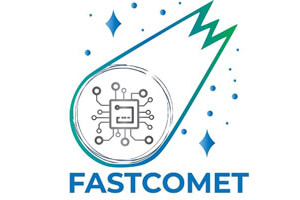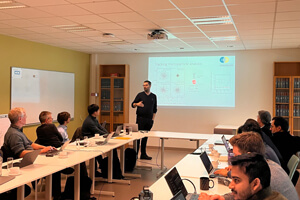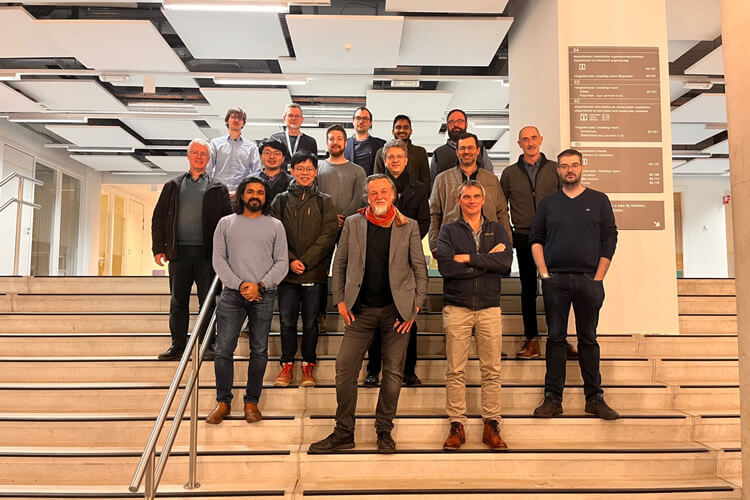FASTCOMET is a project funded by the European Innovation Council (EIC) that is aiming to establish a proof of concept to develop new high storage capacity memories and increase them based on existing demand and at an affordable price. It is based on a colloidal memory technology concept in which nanoparticles are the data carriers.
The project is being led by the Catholic University of Leuven (KU Leuven), and the other members of the consortium include: the Applied Photobiological Chemistry ( AppLightChem) research group at IQS, the Leuven Interuniversitair Micro-Electronica Centrum IMEC technology centre, the University of Strasbourg, the University of Vigo, and the Autonomous University of Madrid.
One of the current limitations in computer use is their memory capacity for data and file storage. This limitation is determined both by the size of the devices themselves and by the materials with which they are built, which hinder them from reaching high memory densities.

FASTCOMET is a memory storage concept in which colloidal nanoparticles are considered “data carriers.” The project aims to obtain new technology that leads to devices with high memory densities based on dielectrophoretic forces (that is, which allow objects to be separated according to their mobility in an alternating electric field). These forces will be applied in this case to nanoparticles subjected to an oscillating electric field, which will be trapped or not depending on their polarizability with respect to the incident alternating electric field. The three-dimensional arrangement of these nanoparticles will result in a very large information capacity (ultra-high bit densities) in a very small space (on the order of 1,000 nanometers3). And all this will be done at a far lower cost than current storage technologies.
This proof of concept will be conducted in accordance with different objectives. On the one hand, it will be necessary to identify the appropriate materials that allow the nanoparticles to be built with antagonistic dielectrophoretic force profiles. In addition, it will be necessary to develop chip prototypes to store information using these types of forces, employ advanced optical and electronic microscopy techniques, and develop theoretical models to study the dynamic movement of nanoparticles in the presence of an oscillating electric field.
IQS contributions to FASTCOMET

The researchers with the AppLigthChem group at IQS, Dr Santi Nonell and Dr Roger Bresolí, are experts in the field of photonics and its many applications. They will be responsible for developing optical microscopy techniques to conduct the study of dielectrophoretic forces, which will have a key impact on the development of the new colloidal memory and will enable the desired nanoparticles to be trapped. To realize this objective, the AppLightChem group, led by Dr Roger Bresolí, will employ its knowledge and experience with “optical tweezers” technology to adapt them to the study of dielectrophoretic forces as, in the end, an optical field is an electromagnetic field that oscillates at a very high frequency. Therefore, the hypothesis is that the technology developed beforehand by the AppLightChem group to study optical fields and forces will also be valid in general to study oscillating electromagnetic fields such as those responsible for the dielectrophoretic forces studied in this project.
The FASTCOMET project is funded by the European Union // This project is funded by the European Union.










